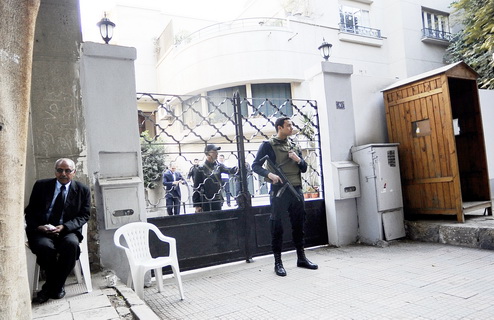GENEVA: UN investigators said on Friday they would start next week to probe alleged human rights violations committed in Libya by both forces loyal to Moammar Qaddafi and rebels trying to topple him.
The independent three-member commission of inquiry, headed by American war crimes expert Cherif Bassiouni, declined to reveal their exact travel schedule but said that it would stop first in Egypt and also would visit Tunisia and Libya.
He said the team would gather testimony and cooperate with the International Criminal Court (ICC) in the Hague, whose prosecutor Luis Moreno-Ocampo also is looking into possible war crimes by Qaddafi, his sons and his inner circle.
"We are going to Libya, both the eastern and western part of Libya," Bassiouni told a news conference in Geneva, referring to the largely rebel-held east and the government-held west.
"An investigation has to be fair, impartial and independent. This is what we intend to do. We are leaving Geneva on Sunday, we hope to return by the end of the month."
The UN Human Rights Council, composed of 47 member states, unanimously approved the inquiry on Feb. 25. The Geneva forum denounced attacks on civilians, killings, arrests and the detention and torture of peaceful demonstrators, saying they may amount to crimes against humanity.
Bassiouni said that the team had informed the Libyan government of its plans and Tripoli had issued a public statement saying it would welcome them from April 15.
"We’ll talk to everyone. We will be visiting hospitals, so we’ll talk to people who are injured, we will go to prisons," he said, adding that the team would go to rebel-held Benghazi.
Bassiouni is a US-based professor and war crimes expert born in Egypt who has served on previous UN human rights inquiries including a UN Security Council inquiry into war crimes in the former Yugoslavia (1992-94).
The other two panel members are Philippe Kirsch, a Canadian former judge of the International Criminal Court (ICC), and Asma Khader, a Jordanian lawyer and former minister. "The mandate we have is to investigate all alleged violations of human rights law and the crimes perpetrated. It would be highly premature of us to determine who may have done what," Kirsch said.
"We are there to investigate violations that are committed in the course of an armed conflict," he said.

